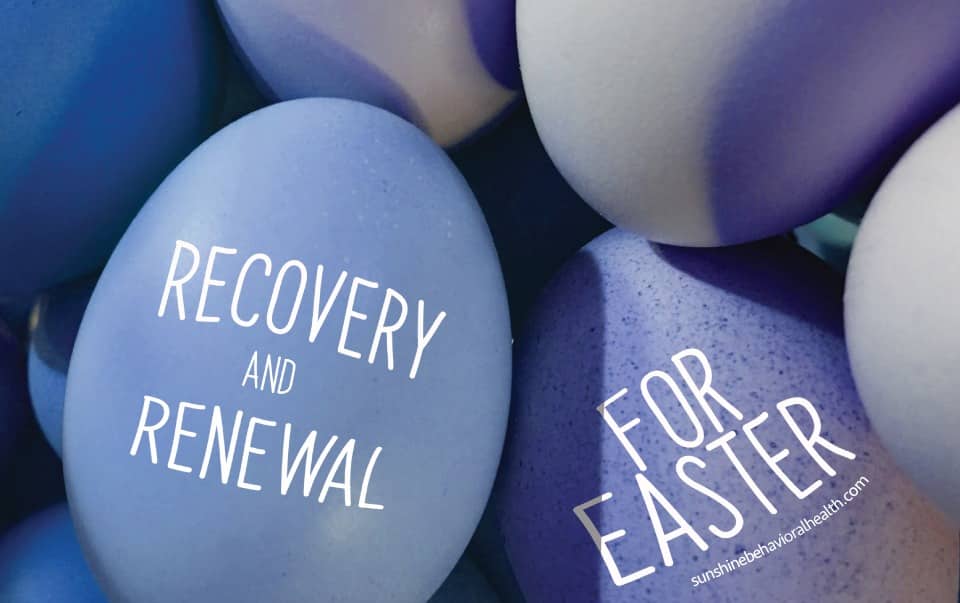
Recovery and Renewal for Easter
Easter is a time of rebirth and renewal. Many Christians celebrate the resurrection of Jesus Christ. Others connect it to spring, especially considering that Easter falls on April 12 in 2020. Easter in mid-April definitely feels more like springtime than a March date. A major symbol of the season is the egg, usually colored in vivid hues. The roots of the tradition vary. Some say they’re a pagan symbol of rebirth and they were painted in connection to spring festivals, a practice that Christians adopted. Other stories connect it to Mary, the mother of Jesus, saying she brought eggs to her son’s crucifixion and blood from his wounds dripped on the eggs, staining them red. Eggs do make a fine symbol of transition and new beginnings, especially in terms of addiction and recovery. They’ve been depicted in art as signs of renewal and birth. Consider the chick that breaks free of the hard shell and emerges to join the world. Or of the tough, protective exterior (that’s also quite fragile) and the soft interior. Some ancient peoples believed the world was hatched from an egg. Australian aboriginals believed an egg was what cast light on a dark world (after a dancing bird and emu’s quarrel over an egg ended in a blaze). Thousands of years ago in Africa, eggs were part of spring rituals, symbols of growth and life. Sometimes, recovery involves breaking free of that tough outer barrier, letting go of old habits that hold you back so you can brave a new world. If a dependency on drugs or alcohol is holding you back, consider climbing out and away and taking a step toward a renewed you. If the thought scares you, don’t let it. There are many helpful resources out there to guide you. And never forget, you can’t make an omelet without breaking a few eggs. Sources mentalfloss.com – 5 Theories on Why We Dye Eggs for Easter thedaliuniverse.com – Dali symbols folklorethursday.com – The Folklore of Eggs: The Mystical, Powerful SymbolismA Message From Our CEO
Medical disclaimer:
Sunshine Behavioral Health strives to help people who are facing substance abuse, addiction, mental health disorders, or a combination of these conditions. It does this by providing compassionate care and evidence-based content that addresses health, treatment, and recovery.
Licensed medical professionals review material we publish on our site. The material is not a substitute for qualified medical diagnoses, treatment, or advice. It should not be used to replace the suggestions of your personal physician or other health care professionals.





